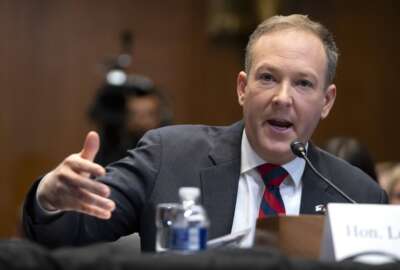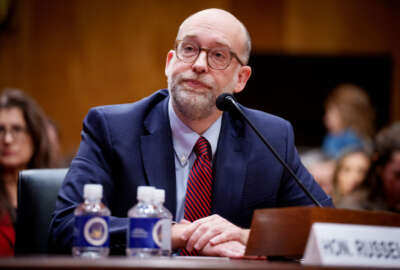Shutdown whack-a-mole and the interagency
Opening some agencies while keeping others shut down is an unsustainable exercise, says Jeff Neal, former chief human capital officer at the Department of Homeland...
Commentary by Jeff Neal
Founder of ChiefHRO.com
& Senior Vice President, ICF International
This column was originally published on Jeff Neal’s blog, ChiefHRO.com, and was republished here with permission from the author.
Since the shutdown began, there has been a lot of press talking about efforts to open parts of some agencies or specific programs. Great examples are the death benefits for families of fallen troops, continuation of other benefits for veterans, opening national monuments, and others.
The common thread driving them is public outcry over the effects the shutdown is having on programs people care about. Expect to see more now that the Nuclear Regulatory Commission is sending most of its staff home. Every day we will read more stories about the newest part of government to run out of money or the previously unknown effects the shutdown is having. 
Much like playing whack-a-mole, the effort is unsustainable. The bad press will be coming too fast for the Congress to react to each problem individually. Part of the problem is that every program has a constituent somewhere. Another equally big problem is the nature of government itself.
One of the lessons government employees have to learn as they move up the ladder is how to operate in what is often referred to as “the interagency.” The interagency is that realm between agencies where you have to work to get things done.
Government issues are often so complex that it is common to see them cross agency lines. The only way to get the job done is for multiple organizations to come together. The interagency is particularly critical in the national and homeland security world. That world is made up of hundreds of thousands of people in the Departments of Defense, Homeland Security and State, along with others from the CIA, the White House, the Treasury and more.
Being able to operate in the interagency is absolutely essential if you want to get something done. We train people on the interagency. We stress the need to network, develop contacts, and learn how to operate when more than just your agency is involved. We do that because it is the only way to get big things done.
Much of my work at the Department of Homeland Security involved working with other agencies. Operating entirely within your department is not possible for a great many people.
Imagine what happens when parts of the interagency are shut down. What happens when you need essential information to get your job done, and the only person who has the information you need is not there because they are shut down?
Much like taking one wheel off a car, the ability to get big things done is hampered or brought to a halt.
Opening parts of the government here and there may end the public uproar over them, but it still doesn’t solve the problem of the consequences of shutting down the interagency. We will see crucial issues where the right people to solve the problem simply are not available when we need them.
Whack-a-mole is a fun game, but it is not a strategy for governing.
Copyright 2013 by Jeff Neal. All rights reserved.
Jeff Neal is founder of the blog, ChiefHRO.com, and a senior vice president for ICF International, where he leads the Organizational Research, Learning and Performance practice. Before coming to ICF, Neal was the chief human capital officer at the Department of Homeland Security and the chief human resources officer at the Defense Logistics Agency.
RELATED STORIES:
Latest government shutdown news
Copyright © 2025 Federal News Network. All rights reserved. This website is not intended for users located within the European Economic Area.





